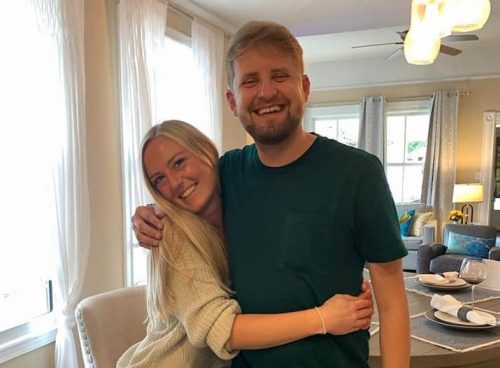We, the Wounded, Must Share the Burden of Fear
Written by |

She seemed cool and collected when her big surgery date was confirmed. And the next day, Britt seemed better than fine — super, even. She was a blond blur of energy, a real firecracker, flinging jokes this way and that in her thick New Englander accent. I couldn’t have expected she’d be weeping mere hours later, overpowered by the realization that a “see you later” to friends is void of guarantee.
Because when a person has cystic fibrosis like me, or pulmonary hypertension like her, we aren’t afforded the privilege of unhesitant see-you-laters.
Maybe I should have foreseen the imminent yet abrupt personality shift. I know too well the dazed paralysis that follows a disturbing call from the doctor. I know the need to mask the anxiety with humor and eccentric behavior, to scream louder and louder to drown out the intensifying buzzing filling my head. I remember the panic foaming into my throat while others lived their “normal” lives. I remember trying to take deep breaths while my disease suffocated me.
We believe the burden is on us to avoid dragging others with us, and so we mask. Guilt intertwines with disease. When Britt cries out that, “It’s not about me, it’s about the people who love me,” I feel that. Initially, I only agreed to a lung transplant because I feared breaking my family’s hearts. Seeing a mother or father cry changes something in you. We don’t want to imagine those tears continuing past our time, or our parents ending up like the neighbor who became a shell of a man after losing his son.
But there’s also the fear of surviving, which sometimes is more fearsome than death. Britt laments that recovery is rarely really recovery, and that most people don’t see — or feel — the weeks of intense suffering following medical crises. They see only that your mask has remained intact: “You look fine!”
But a person never leaves a crisis as themselves, and they certainly never leave feeling fine. A person doesn’t even feel like a person when cornered in the ICU like a trembling creature. Trauma keeps you there in that corner, sometimes even years later.
Watching Britt hurt makes it all raw for me again, like I’m still a scared kid in the ICU. I cycle through memories of searing pain and unbearable shame.
“People say you seem fine, but ‘fine’ is still f***ed,” she says.
My instinct is to point out the silver linings, the lessons learned, the growth earned. In my discomfort, I want nothing more than to glaze over her fears with forced reframing so that I don’t need to face my own.
Chronic, terminal disease can be a decades-long dread, a weight slowly ripping through the flesh of your back and crushing every bone. I am weary from its burden, but that night, I see hers is heavier. Britt doesn’t need pretty words, sage advice, and distanced analysis — she needs a friend to share the load, a friend who has felt what she’s felt.
I say what I wish was said to me: “It’s unfair. It is, it is, it is. You’re right.”
I do what I wish was done for me: I give her my shoulder to lean on.
I encourage her to do what I wish I was encouraged to do: feel and cry.
And then I join her in acting, my mask with hers — but this time to comfort rather than to cover. I craft stories from my scariest ICU stay years ago, but only the funny ones. Because even in the scary times, we can find reasons to laugh.
And then I hug Britt and tell her that I love her, and say, “I’ll see you later.” We know that even realists need hope.
***
Note: Cystic Fibrosis News Today is strictly a news and information website about the disease. It does not provide medical advice, diagnosis, or treatment. This content is not intended to be a substitute for professional medical advice, diagnosis, or treatment. Always seek the advice of your physician or other qualified health provider with any questions you may have regarding a medical condition. Never disregard professional medical advice or delay in seeking it because of something you have read on this website. The opinions expressed in this column are not those of Cystic Fibrosis News Today, or its parent company, Bionews, and are intended to spark discussion about issues pertaining to cystic fibrosis.








Christine Lynch
You are two of the bravest people I've ever met. Kudos to you both for fighting the fight and pushing on.
Brad Dell
You’re so kind, Christine! Thank you so much. I hope you’ve been better than well!